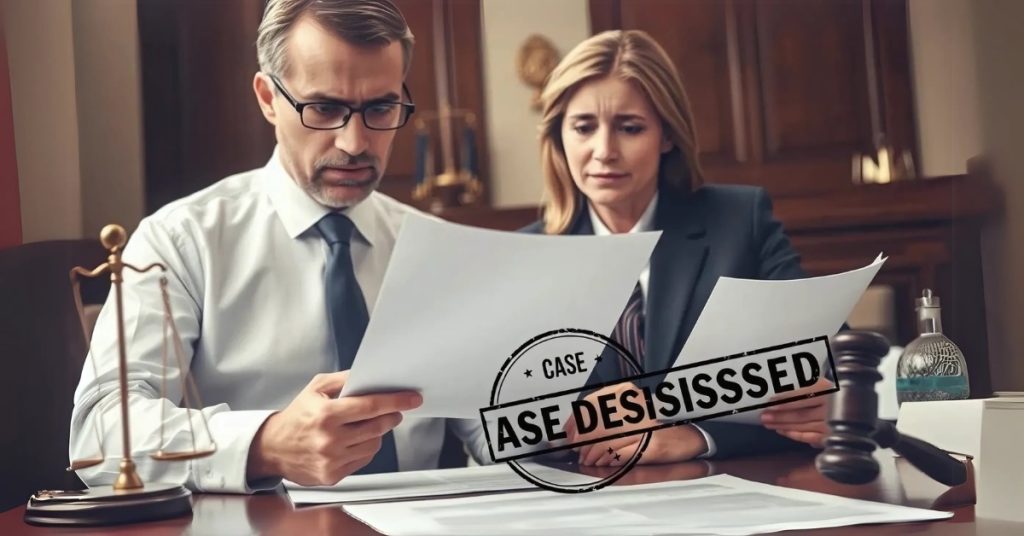
How to Get a Debt Lawsuit Dismissed:
A debt lawsuit can be a stressful and overwhelming experience, but you do have options to fight back. If you’ve been served with a lawsuit for unpaid debt, it is crucial to understand the legal process, possible defenses, and steps you can take to get the case dismissed. Many individuals assume that once a lawsuit is filed, they have no choice but to pay, but the reality is that there are multiple legal avenues available to protect your rights and avoid unjust claims.
In this extensive guide, we will break down how to get a debt lawsuit dismissed, including legal defenses, pre-trial strategies, and expert advice to help you navigate the process effectively. We will also discuss how to prepare for court proceedings, common mistakes to avoid, and alternative ways to handle a lawsuit without severe financial repercussions.
Understanding the Debt Lawsuit Process
When a creditor or a debt collection agency sues you for unpaid debt, they must follow a legal process. Here’s a general overview:

- Complaint Filed – The creditor files a lawsuit in court, claiming you owe them money.
- Summons Issued – You receive a legal notice (summons) informing you of the lawsuit and a deadline to respond.
- Responding to the Lawsuit – You have a limited time (usually 20-30 days) to file an answer.
- Pre-Trial Motions & Discovery – Both parties gather evidence and may file motions to dismiss, settle, or request further investigation.
- Settlement Attempts – Negotiations may take place between you and the creditor to resolve the case outside of court.
- Trial – If unresolved, the case proceeds to court, where a judge or jury decides the outcome.
- Judgment & Post-Trial Actions – If you lose the case, the court may issue wage garnishments, asset seizures, or other financial penalties.
Knowing this timeline helps you take the right steps to protect yourself and avoid unfavorable outcomes.
Legal Defenses to Get a Debt Lawsuit Dismissed
Not all debt lawsuits are valid. Creditors must provide accurate evidence and follow proper legal procedures. Here are some common legal defenses that may help you get a debt lawsuit dismissed:
1. Lack of Proper Documentation
Creditors must provide proof that you owe the debt. Many debt buyers purchase old debts but lack original agreements or transaction records. If they cannot prove ownership of the debt, you can request dismissal.
2. Statute of Limitations Expired
Every state has a statute of limitations for debt collection lawsuits. If the creditor sues after the legal time limit, the court may dismiss the case.
- Typical statute of limitations by debt type:
- Credit Card Debt: 3-6 years
- Medical Debt: 3-6 years
- Personal Loans: 4-10 years
- Auto Loans: 4-6 years
3. Incorrect or Misleading Information
Errors in the lawsuit, such as wrong debt amount, incorrect creditor name, or mistaken identity, can be grounds for dismissal.
4. Identity Theft or Fraud
If the debt was a result of identity theft, you can dispute it by providing police reports or fraud claims.
5. Violation of Debt Collection Laws
Under the Fair Debt Collection Practices Act (FDCPA), collectors cannot harass, misrepresent facts, or violate consumer rights. If they do, the case could be dismissed.
6. Settlement or Bankruptcy Protection
If you have already settled the debt or it was discharged in bankruptcy, the lawsuit is invalid.
7. Errors in the Summons or Complaint
If the lawsuit contains clerical errors, such as misspelled names or incorrect addresses, you can challenge its validity.
8. Debt Paid in Full
If you have proof that the debt has already been paid, present documentation to have the lawsuit dismissed.
Steps to Take Before Trial to Dismiss a Debt Lawsuit
If you’ve been served with a debt lawsuit, don’t ignore it. Here’s what you should do:
Step 1: Respond to the Lawsuit
- Never ignore the summons – Failing to respond may result in a default judgment against you.
- File an answer with the court denying or disputing the claims.
- Clearly state your defenses and demand proof of the debt’s validity.
Step 2: Request Debt Validation
- Demand proof of the original creditor agreement, payment history, and debt ownership.
- If the creditor fails to provide documentation, file a motion to dismiss.
Step 3: File a Motion to Dismiss
- If any of the legal defenses apply (e.g., expired statute of limitations, lack of documentation), request dismissal before trial.
Step 4: Negotiate a Settlement
- Sometimes, creditors prefer settlement over a lengthy trial.
- Offer a reduced payment or structured repayment plan.
- Request that the lawsuit be dropped in exchange for a payment agreement.
Step 5: Attend the Court Hearing Prepared
- Bring all necessary documents, such as past payments, settlement records, and correspondence.
- If the creditor fails to prove their case, request dismissal.
- Remain calm and present your case clearly.
Real-Life Case Studies & Expert Opinions
Case Study 1: Statute of Limitations Defense
John, from Texas, was sued for a credit card debt that was 8 years old. Since the statute of limitations in Texas is 4 years, his attorney filed a motion to dismiss, and the court ruled in his favor.
Case Study 2: Improper Documentation Dismissal
Sarah was sued by a debt collection agency but challenged them to provide the original creditor agreement. The agency couldn’t present valid proof, leading to a case dismissal.
Expert Opinion
Attorney Mark Johnson (Consumer Rights Lawyer) says:
“Many debt collection lawsuits are flawed because they lack proper documentation. Challenging the creditor’s evidence is one of the strongest defenses.”
Final Thoughts
Getting a debt lawsuit dismissed requires knowledge, preparation, and action. By using the right legal defenses and following proper court procedures, you can increase your chances of successfully dismissing the lawsuit and protecting your financial future.
If you need professional help, consider consulting a debt attorney to navigate the legal process more effectively. Stay informed, exercise your rights, and don’t let creditors take advantage of you.